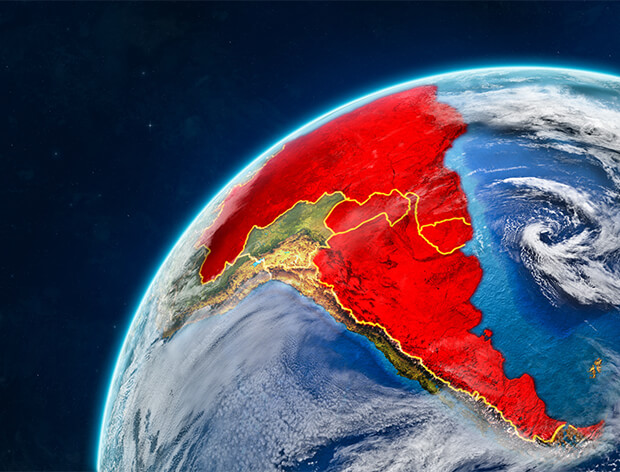The ambitious proposed free trade agreement between the EU and the Mercosur bloc of South American countries risks pushing member countries “away from sustainable growth and development”, academics argue.
The two trading blocs reached a political agreement on the pact in 2019. It would cover areas including tariffs, trade barriers and rules of origin and apply to all EU member states, as well as Mercosur full members Argentina, Brazil, Paraguay and Uruguay. Fifth full member Venezuela is currently suspended.
Though the agreement was hailed by the European Commission as a “win-win deal”, bringing “sustainable growth on both sides”, it has since failed to achieve ratification due to concerns over environmental damage in South America.
However, new research by Boston University’s Global Development Policy Center argues that the promises of mutually beneficial growth “overlook critical changes that are underway in both the EU and Mercosur” that could actually mean the pact does more harm than good.
“The EU-Mercosur agreement may contribute to wage stagnation, higher inequality, premature deindustrialisation, higher dependence on external demand and other adverse outcomes,” the paper says.
Authors Jeronim Capaldo and Özlem Ömer, both non-resident researchers at the policy centre, say that in recent years employment across all countries studied has shifted from “dynamic” to “stagnant” sectors of the economy. At the same time, value-added generation has moved in the opposite direction.
Within the EU, it says stagnant sectors include agri-food and mining, where both productivity and wage growth remain low. Dynamic sectors – which show high productivity and wage growth – include manufacturing and financial services.
In Brazil and Argentina, agri-food is seen as a dynamic sector, while manufacturing and services trade faces a more mixed picture.
Capaldo and Ömer argue these characteristics have been overlooked in earlier projections of the benefits of a free trade agreement, which have assumed output increases in stagnant sectors.
Within the EU, that means high-end economic output “is unlikely to expand substantially while stronger cost competition in more stagnant sectors is likely to undermine their wage and productivity growth”.
The likely result is a “deterioration of income distribution”, the paper says, undermining the “problematic assumptions” made in previous projections: full employment, constant income inequality and fixed productivity growth.
The paper argues the deal could therefore “lock many countries in a condition of technological and industrial subordination, with adverse consequences in terms of inequality, growth and development”.
For the trade finance sector, it is not clear whether the trade liberalisation measures contained within the deal represent a significant opportunity.
Capaldo tells GTR: “The answer depends on whether total trade volumes will actually increase or not. If they do, there will be more demand for trade finance, presumably.
“But volumes may not actually increase, especially if inequality in both areas continues to grow, constraining most households’ incomes.”
He adds that trade finance can have a destabilising effect depending on how it is structured. Financing commodities with derivatives, for example, “may ultimately hurt growth and trade expansion”.
The EU-Mercosur agreement itself remains in limbo. Despite the 2019 political agreement, the deal cannot pass without the backing of every EU government, and quickly ran into objections from Austrian officials over Brazilian President Jair Bolsonaro’s controversial approach to environmental protection.
Since then, little progress has been made. Austria’s coalition government reiterated in March this year that it believed Amazon forest fires and intensive agricultural production in Mercosur countries “will exacerbate global warming”.
“If we go on boosting trade and economic growth without taking the impacts on biodiversity, ecosystems and natural resources into account, we will inevitably be heading towards a climate catastrophe,” said Werner Kogler, Austrian vice-chancellor and a representative of the co-leading Green Party.
Since then, the European Commission has published a final sustainability impact assessment of the agreement, which downplayed those risks.
“The report found that appropriate policies, enforcement activities and market-based initiatives can prevent any major impact of the trade agreement on deforestation in Mercosur,” it says.
“Similar policies and initiatives implemented in Brazil between 2004 and 2012 resulted in a decline in deforestation while agricultural production rose.”
The assessment acknowledges concerns about environmental impact, however, and says the European Commission “is therefore engaging with Mercosur countries to seek real progress on commitment on the Paris Agreement and deforestation”.







